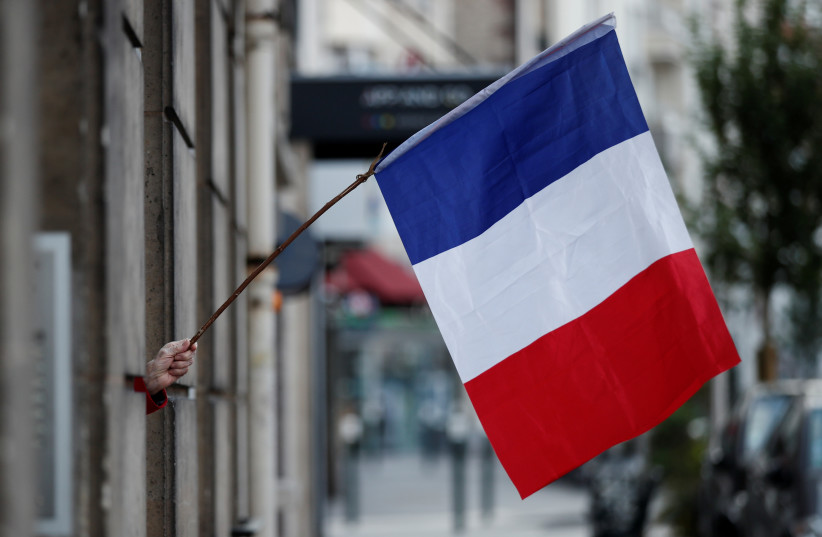The US embassy in Kyiv reopened on Wednesday after a three-month closure due to Russia's February 24 invasion of Ukraine.
"We are officially reopening operations," spokesperson Daniel Langenkamp told Reuters shortly before the US flag was raised above the embassy.
He said a small number of diplomats would return initially to staff the mission.
Russia said on Wednesday it was expelling a total of 85 embassy staff from France, Spain and Italy in response to similar moves by those countries, highlighting the damage to relations with leading EU members since it launched its war on Ukraine.
The Foreign Ministry said it was ordering out 34 diplomatic staff from France, 27 from Spain and 24 from Italy.
The three countries are among European nations that have collectively thrown out more than 300 Russians since the February 24 invasion. In many cases, they accused Russian diplomats of spying, which Moscow has denied.
Russia's response has included sending home 45 Polish staff and 40 Germans last month. It has also announced tit-for-tat moves against Finland, Romania, Denmark, Sweden, Norway and Japan, among others.
Italian Prime Minister Mario Draghi called Wednesday's announcement by Moscow a "hostile act" and said diplomatic channels must not be interrupted.
France said it deplored the Russian move as an unjustified response to what it said was its own decision in April to expel "several dozen Russian agents acting on our territory under diplomatic status and working against our security interests."
France condemns Russia move to expel staff from French Embassy in Moscow
France condemns Russia's decision to expel diplomats and staff from the French Embassy in Moscow, said the French Foreign Affairs Ministry.
Russia's Foreign Ministry had said earlier on Wednesday that it was expelling 34 French diplomats in a retaliatory move.
France in April kicked out 35 Russians with diplomatic status as part of a broader wave of expulsions that saw more than 300 Russians sent home from European capitals.
Kremlin spokesman Dmitry Peskov said on Wednesday that there was no movement in peace talks with Ukraine, and that Kyiv was showing a total unwillingness to continue them.
"Negotiations are not progressing and we note the complete unwillingness of Ukrainian negotiators to continue this process," Peskov said.

On Tuesday, Interfax news agency cited Russian Deputy Foreign Minister Andrey Rudenko as saying that Russia and Ukraine were not holding talks "in any form," and that Kyiv had "practically withdrawn from the negotiation process."
EU proposes emergency funds to help European militaries amid war
The European Union's executive proposed on Wednesday a 500 million euro ($525.70 million) defense fund that would help EU governments develop and buy more weapons together, saying that Russia's war in Ukraine showed the need to modernize.
The money, which would come from the EU's long-term budget and could also increase with private sector funding, would meet the most pressing weakness in air, land and sea defenses.
It would require the bloc's governments to make purchases jointly as a means to boost collaboration, one of the EU's long-term goals is to overcome years of wasted spending as governments pursued national projects leading to duplication.
While most of the EU's states are members of NATO, EU defense cooperation is seen as strengthening the Western alliance's European members and reducing dependency on the United States, with all assets still available for NATO use.
The emergency money would be available for 2023 and 2024 but must be agreed upon by all 27 EU governments.
The EU has already launched a long-term joint weapons fund and has agreed to revitalize its rapid-reaction force. However, joint spending and investment in defense research remain disjointed and lacking collaboration.
Even before Russia's Feb. 24 invasion of Ukraine, European Union states spent nearly 200 billion euros ($225 billion) on defense in 2020, the most since records began in 2006. But joint investment by governments fell, the European Defence Agency (EDA) said in December. Read full story
Without US help, the EU would struggle to defend itself, lacking intelligence, reconnaissance aircraft and medium-range missile defense as well as amphibious ships and submarines, according to a 2020 report by the European Parliament's sub-committee on security and defense.
